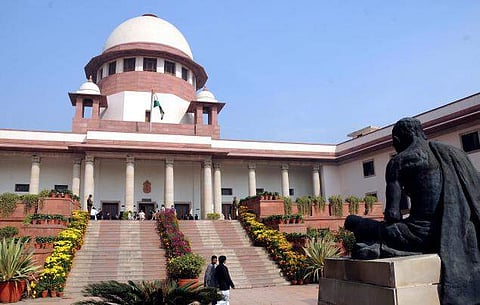

NEW DELHI: No, people facing chargesheets in criminal cases will not barred from contesting elections, but you will have a better fix on their antecedents so as to make an informed choice.
That was the crux of a Constitution bench’s verdict on Tuesday, which left it to Parliament to make a law to keep persons facing serious criminal cases out of the political stream.
Saying criminalisation of politics strikes at the very root of democracy, the five-judge bench headed by Chief Justice Dipak Misra issued a slew of directions to cleanse the process.
The guidelines make it mandatory for each candidate to declare his or her criminal antecedents in bold letters in the affidavit while filing the nomination papers, which would be hosted on their party’s website and given widest possible publicity.
The 100-page unanimous verdict written by Misra said going by the constitutional framework, it would be inappropriate for the court to take recourse to any other method as it cannot legislate but only recommend bringing in of a law. “We are sure the law making wing of the democracy of this country will take it upon itself to cure the malignancy.”
The verdict came on a batch of petitions that sought to know whether lawmakers facing criminal trial can be disqualified from contesting elections at the stage of framing of charges against them itself. At present, a person stands disqualified if convicted of a crime and sentenced to two years or above.
Reacting to the verdict, petitioner Ashwani Upadhyay said, “With today’s order, the voter will become more informed. The ruling also makes it mandatory for political parties to publicise the list of candidates having criminal records, which hasn’t happened till date.”